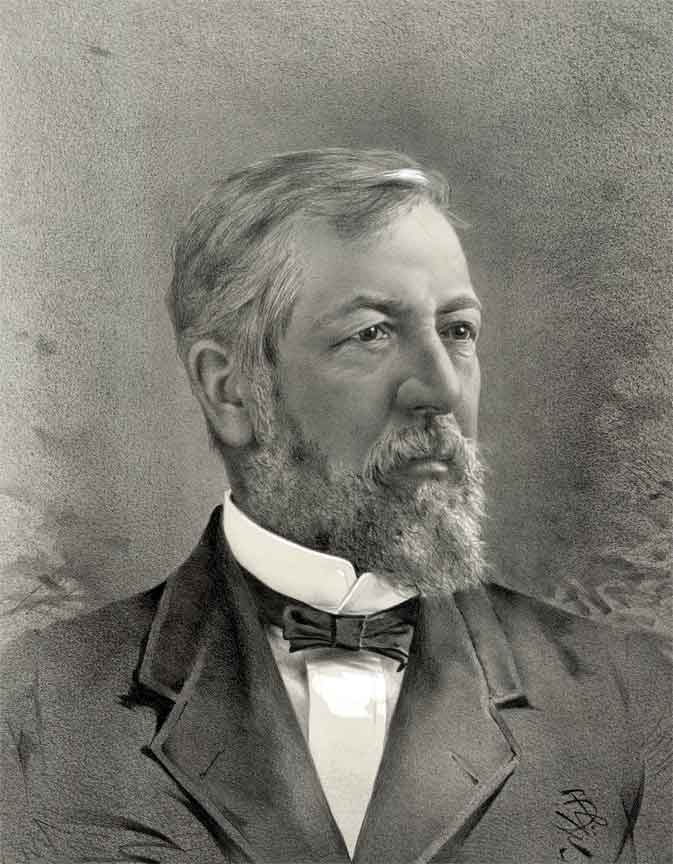James Blaine

James Gillespie Blaine was born on January 31, 1830, in West Brownville, Pennsylvania. After graduating from Washington College in 1847, he taught school while studying law. He moved to Augusta, Maine, where he edited the Kennebec Journal from 1854 to 1857. Elected to the state legislature in 1859, he served as speaker (1861-1862). In 1862, Blaine became a Republican member of the US House of Representatives, serving as Speaker of the House from 1869 to 1876. His politics included a moderate view on Reconstruction, support of hard money and the promotion of international reciprocity agreements. His record in Congress is described in his Twenty Years of Congress (1884-86).
Blaine’s bid for the Republican nomination for President was fatally jeopardized by the publication of the "Mulligan Letters," which suggested that he had granted congressional favors to the Little Rock and Fort Smith Railroad. Nevertheless, he was elected to the US Senate, in which he served until President James Garfield appointed him Secretary of State. As Secretary of State, Blaine worked to increase American trade and influence in South and Central America by trying to prevent European intervention. After Garfield’s assassination, Blaine resigned. In 1884, he received the Republican nomination for President, but his tarnished reputation and his opposition to civil service reform alienated many Republicans, who turned to the Democratic nominee, Grover Cleveland. Blaine lost the elected narrowly: 600 votes in New York, for example, would have reversed the election results in his favor.
Appointed Secretary of State in 1889, this time under President Benjamin Harrison, Blaine organized the first Pan-American Conference (1889). He tried to negotiate a treaty for a canal with Nicaragua, promoted the annexation of Hawaii and worked to settle the Bering Sea dispute with Great Britain in 1889. Leaving the Cabinet in 1892, he died in Washington, D.C., on January 27, 1893, after years of steadily declining health.
 >
>